Estimated reading time: 3 minutes
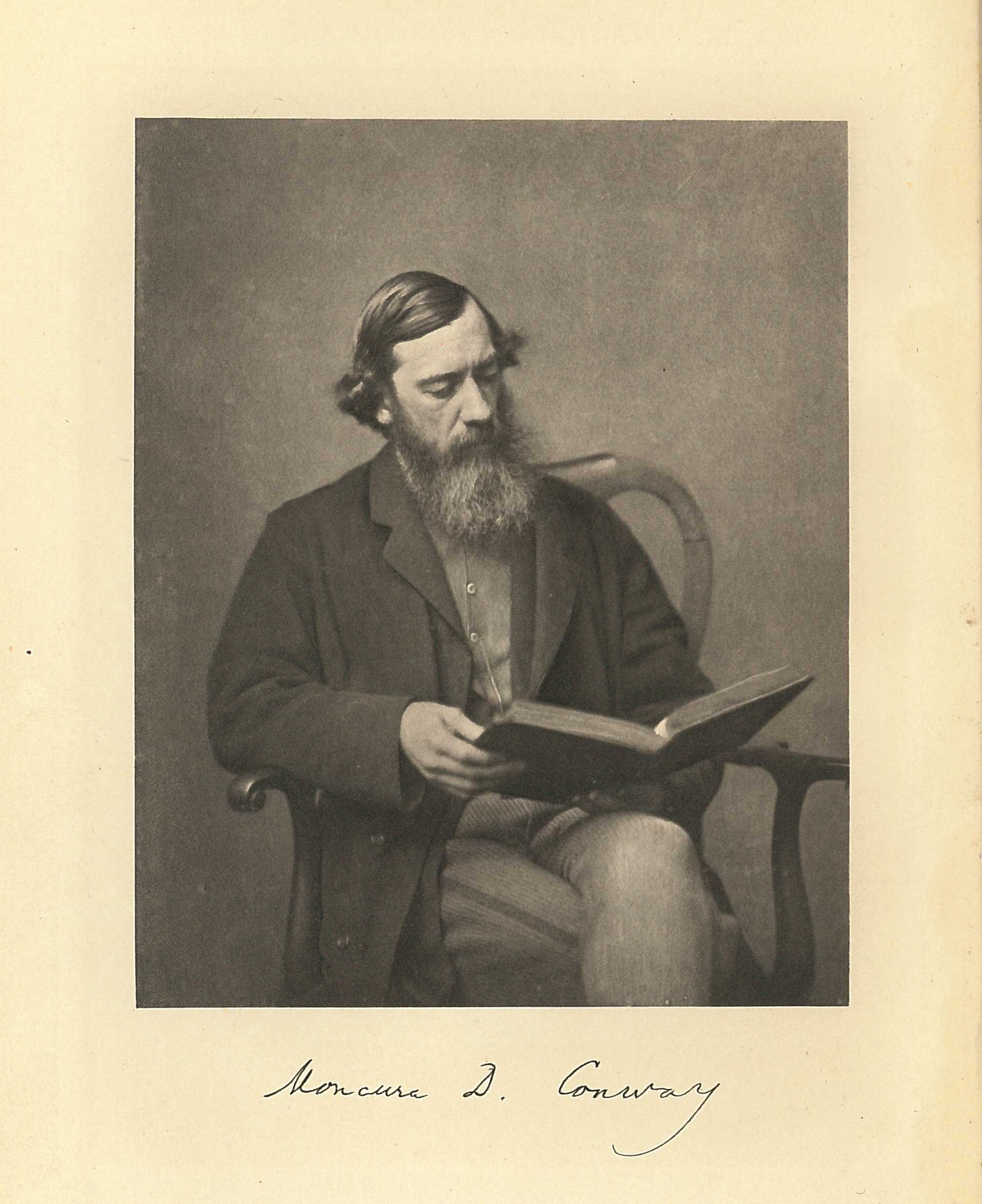
Moncure Daniel Conway was a prolific writer, authoring a multitude of books and pamphlets and contributing to a number journals and magazines. In 1860, when Conway was twenty-eight, he founded The Dial, the title of which paid tribute to a Transcendentalist journal of the 1830s and 40s founded by his spiritual father, Ralph Waldo Emerson. Conway’s new publication was a literary and journalistic monthly on the pages of which he would be one of the first in America to review radical books such as Darwin’s On the Origin of Species.
He also founded and was the co-editor and a correspondent of the The Commonwealth, 1862–63, the purpose of which was to advocate the emancipation of slaves. This was a cause Conway felt so strongly about that he was willing to be exiled from his family who were Virginian slave-owners. He used The Commonwealth not only to advocate the abolition and emancipation of slaves but also to urge an understanding of the Southern Americans, his kin as it were, as the way to win the war against slavery. Later, Conway urged Lincoln personally to make the objective of the civil war the emancipation of slaves. The journal also paid attention to literature and featured the debuts of young writers such as Louisa May Alcott who wrote a series of ‘Hospital Sketches’ describing her experiences as a civil war nurse.
When Moncure Conway came to South Place he supplemented the small income the society was able to pay him with work writing on American topics for English journals such as Frasers, the Fortnightly Review, The Radical and The Westminster Review, and for American magazines such as Harper’s, The New York Tribune and the Cincinnati Commercial on English matters.
He would discourse on such matters as the need for social and political reform, slavery, religion, war as well as lecturing on these subjects. Following is an example of a draft of one of these lectures written by Conway which is held in our archives, and a review of the lecture that appeared in the Leeds Mercury on 4 April, 1893.
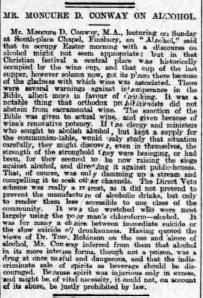
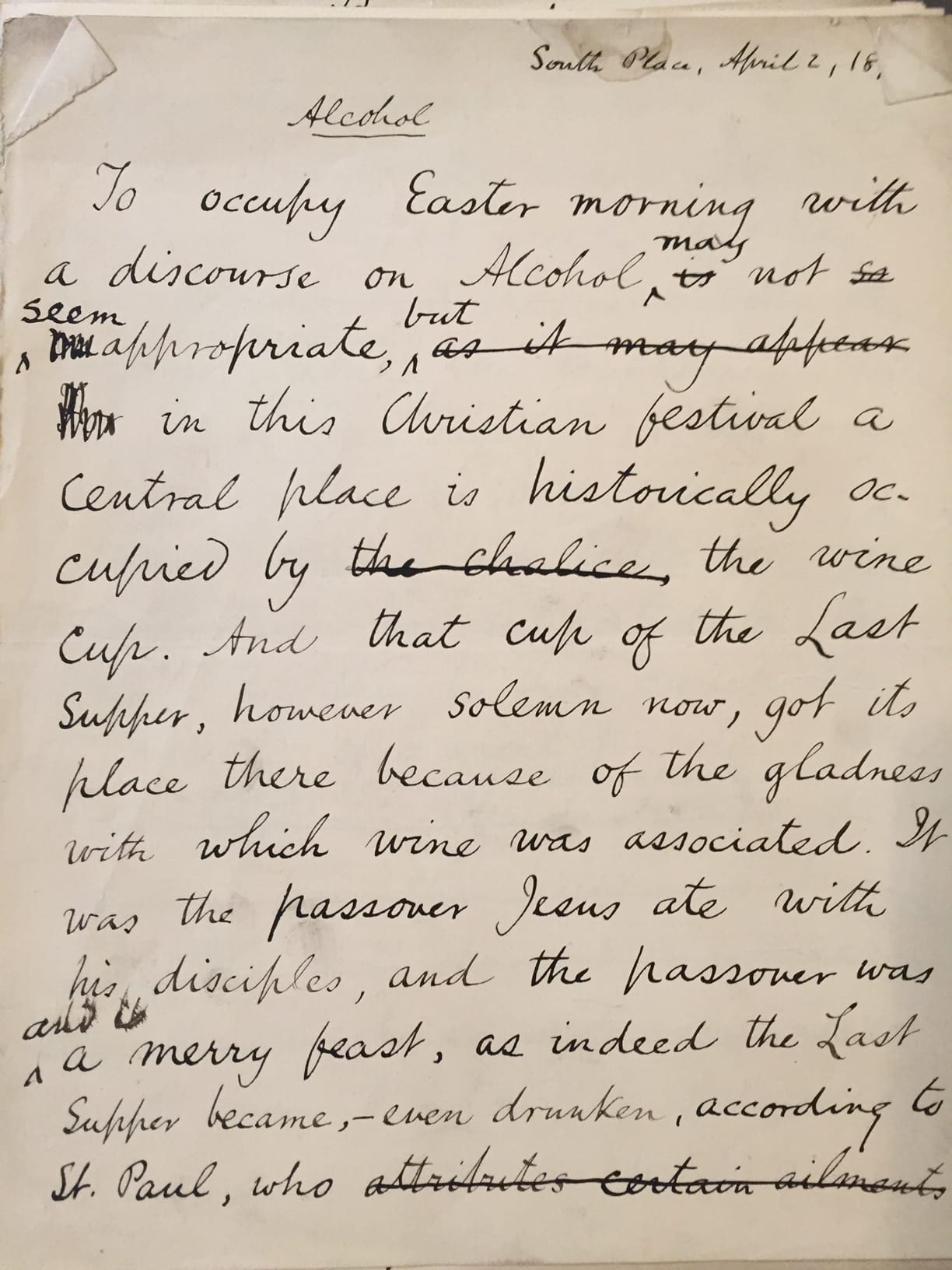
The articles and letters he wrote for these publications also reveal a man who was revelling in the social and cultural connections that his life in London afforded him. Conway had always had a passion for the theatre, something that was somewhat frowned upon by his Cincinnati congregation, who considered he had a lack of ‘clerical propriety’, but in London he was able to indulge his enthusiasms un-judged. He wrote of the authors, artists and celebrities he met, the exhibitions and plays he attended and the fashionable London events at which he was present. These entertaining letters written for the Cincinnati Commercial served to make Conway a household name to the many thousands of ordinary men and women who enjoyed these exciting and lively insights and into his London life.
In 1870 Conway was asked by the New York World to be its war correspondent on the French side of the Franco-Prussian war. His account of the Battle of Gravelotte (the largest battle of the war) was printed in newspapers throughout Europe and America. The carnage he witnessed on the battlefield affected Conway greatly and cemented his pacifist beliefs.
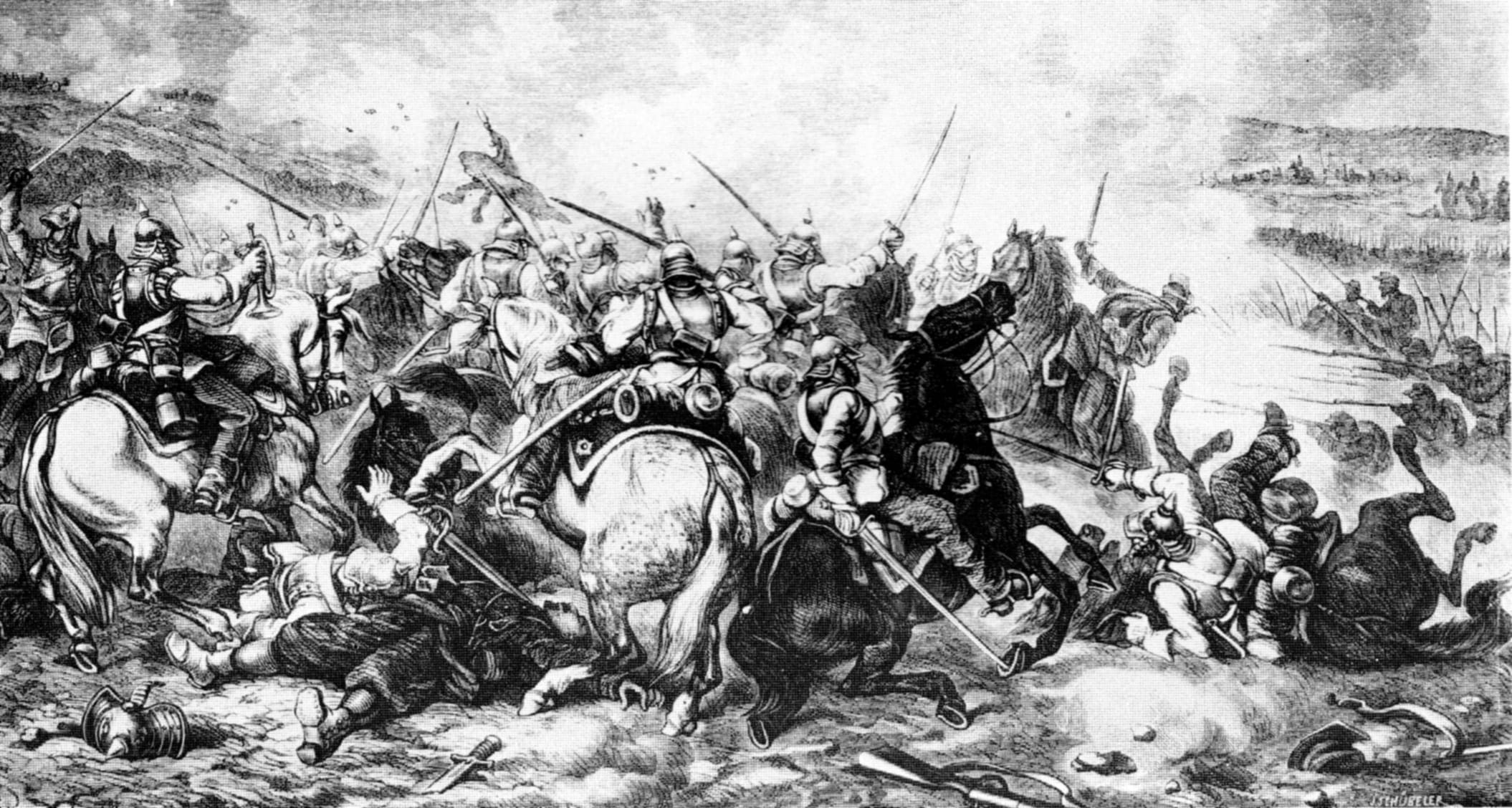
Massacre of Prussian Cuirassiers at Gravelotte. Drawing by Juliusz Kossak, 1871
In his autobiography, Conway recounts his journey to and from the front, noting not only the despicable acts of war but also the compassion and kindness he was shown by strangers, and witnessed being shown to soldiers making their weary way back from the battlefield. Ultimately, the experience was one that laid heavy on his heart, as the following melancholic extract from his autobiography reveals.
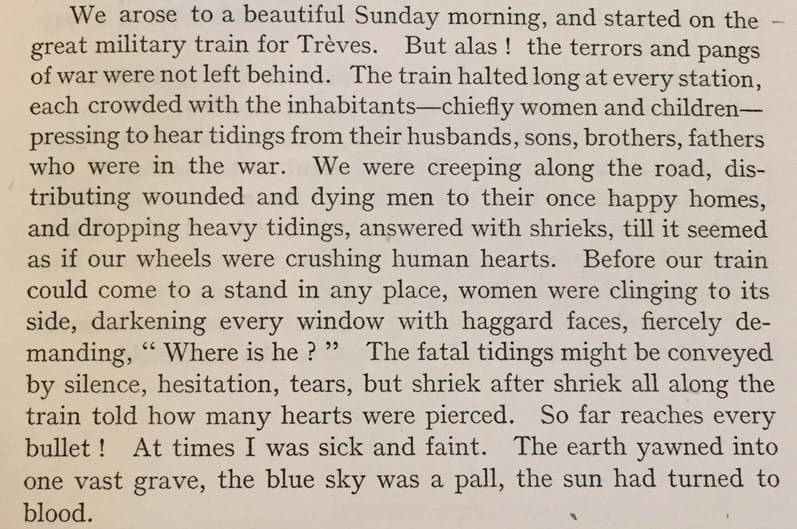
Observing the sheer scope of subject matter on which Conway wrote, one is presented with a picture of a man who had a deep love of, and thirst for, knowledge and understanding of the world around him, and of his and humanity’s place within it. He was a man who felt deeply and desperately about the need for a fairer world, one where men and women of every creed and colour had equal rights, a world which didn’t cause suffering through war and greed. His writing also reveals a light-hearted side to his nature — he was a social animal, taking great delight in being a part of the social and intellectual circles of the day and feeding off the excitement and intellectual and cultural freedom that his life in London afforded him. One can understand, when reading through our archives, why there was a feeling of great love and respect from Conway’s South Place congregation and great grief at his leaving.